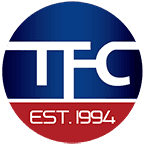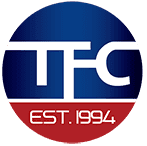Predatory lending is a term that refers to the use of deceptive or manipulative tactics to cajole a borrower into accepting a loan that carries excessive or unfair rates, fees, or other unfavorable terms.
These lending practices are designed to benefit the lender at the expense of the borrower. While this term rose to prominence during the subprime mortgage crisis in 2008, it can refer to all types of lending practices and loans, whether it involves mortgage loans, auto loans, personal loans, or pawn shop loans.
There is debate as to what constitutes predatory lending, but there are common telltale signs to look out for and hints to avoid falling into potentially life-altering traps. With that in mind, here is a guide to predatory loans.
FAQs About Predatory Loans
What are Predatory Loans? Predatory loans refer to lending practices that exploit borrowers through deceptive terms, excessive fees, or high interest rates. These loans often target vulnerable individuals who may not fully understand the terms or have limited financial options.
How can I Identify a Predatory Title Loan? A predatory title loan may have misleading advertising promising guaranteed approval or no credit check, unusually high interest rates that exceed state regulations, and unclear terms that make it difficult to understand the total cost of borrowing.
What Are the Risks of Taking Out a Predatory Title Loan? The risks of predatory title loans include falling into a debt cycle with escalating fees and interest charges, losing your vehicle if you default on payments, and damaging your credit score. Borrowers should carefully review loan terms and seek reputable lenders.
Expert Quote “Predatory loans prey on borrowers who are in urgent need of funds but may not have the financial literacy to understand the terms. It’s crucial to carefully read loan agreements and compare offers to avoid falling into a debt trap.” – Daniel Joelson, Consumer Finance Expert
While subprime borrowers may find themselves targeted by predatory lenders, the truth is anyone can fall victim to these lending practices, especially vulnerable and low-income individuals who have few resources and lower credit scores. It stands to reason that people with precarious financial circumstances are prime targets for such bait-and-switch schemes.
This is particularly true when crises or unforeseen situations arise, and you need to secure cash quickly. Those who are in dire financial straits may not feel they have any other option when money is a priority, and they are not eligible candidates for other funding sources.
As such, consider this overview of predatory loans and how they can impact you as well as your loved ones and financial future.
Borrower Beware
This well-known philosophy applies to borrowers and buyers alike, or at least it should. If a lending offer appears too good to be true, there is likely a catch.
Before signing any loan agreement, it is crucial that you read over the entire document and fully understand the payment terms.
You should compile a list of questions and concerns that need to be addressed before agreeing to or signing anything.
If the lender is hesitant to answer your questions or address your concerns, consider that a significant red flag. It might be worthwhile to consult an attorney or legal aid for assistance to ensure you fully understand the terms and possible fallout if something goes wrong.
Lending practices of this nature often require collateral, such as property, a vehicle, or other assets of value, that can be used to secure the loan.
That way, if you default on the agreement, the lender can cease or repossess the collateral used, which limits their risk and often nets a profit for the lender.
Moreover, these types of loans usually come with high-interest rates and unnecessary fees, which are part of the price of convenience for services rendered.
However, if you opt to enter into such an agreement, you should do so with your eyes wide open and fully aware of the payment terms as well as the possible ramifications. Thus, you can avoid exacerbation of your financial dilemma, incurring additional debt, being forced to give up your assets, and placing your financial future in jeopardy.
Cost Transparency
If you cannot ascertain the actual cost of the loan, something is not kosher. A lender that is customer-centric and follows proper procedures will be transparent about the total cost of the loan as well as its services.
Meaning, you should be able to peruse an online title loan or visit their physical location and easily find all the costs associated with the desired funding option, which includes a clear breakdown of all fees, penalties, and other related charges.
By law, lenders must state a financial product’s annual percentage rate, or APR, which combines the interest rate and upfront fees.
If product details are omitted or buried in the fine print, the lender is reluctant to provide full disclosure and attempt to manipulate the situation. This is a sign the company is not reputable, and it should be a dealbreaker.
Credit Checks Suggest Credibility
If a lender approves your loan application without verifying your credit history or financial resources, it is likely a predatory loan scenario.
Without this information, the provider cannot assess how you have managed past debt or gauge the potential fallout of accruing more debt.
Predatory lenders account for this risk by leveling high upfront fees, elevated APRs, and extraneous charges into the structure of the loans they offer.
These higher rates could be 2-3 times larger than standard, and the additional costs may impede the borrower’s ability to pay back the loan within the given payment terms.
Watch Out for Balloon Payments or Lump-Sum Payment Structures
Another telltale sign of predatory loan providers is the use of balloon payments or lump-sum payment structures.
This deceptive practice is common among lenders. It involves structuring the loan so that your payments are initially low, but then a significant final payment is due at the end of the loan.
These large, closing sums are referred to as balloon or lump-sum payments, and they are a hallmark of manipulative providers.
Negative Amortization Is a Big No-No
This predatory payment structure involves setting the borrower’s monthly payment below the interest cost, which results in the remaining interest cost being applied to your principal loan balance. With this payment structure in place, your loan balance only continues to grow, and subsequently, you are incurring more debt every month.
Predatory loans are structured to entice borrowers to accept unfavorable payment terms whereby the lender extracts more money from the borrower than owed via excessive or unfair rates, fees, or other unfavorable terms.
These lending practices are designed to reduce the lender’s risk and profit margin at the expense of the borrower.
The main takeaway regarding this topic is that potential borrowers should always do their research, explore their options, and read the fine print, so they are fully informed before signing on the dotted line.
This article was brought to you by TFC Title Loans, we try to bring to you the most informative information. If you are interested in getting a title loan local to you, we are able to help you with our large referral network.
We will help you with local title loans to get the most money by using the equity that you have in your vehicle, the application is fast and we can provide you with same-day funding.
All of our referral partners are in compliance with the CFPB. We will help you to get the money that you need but from a trusted and reliable title lender.


